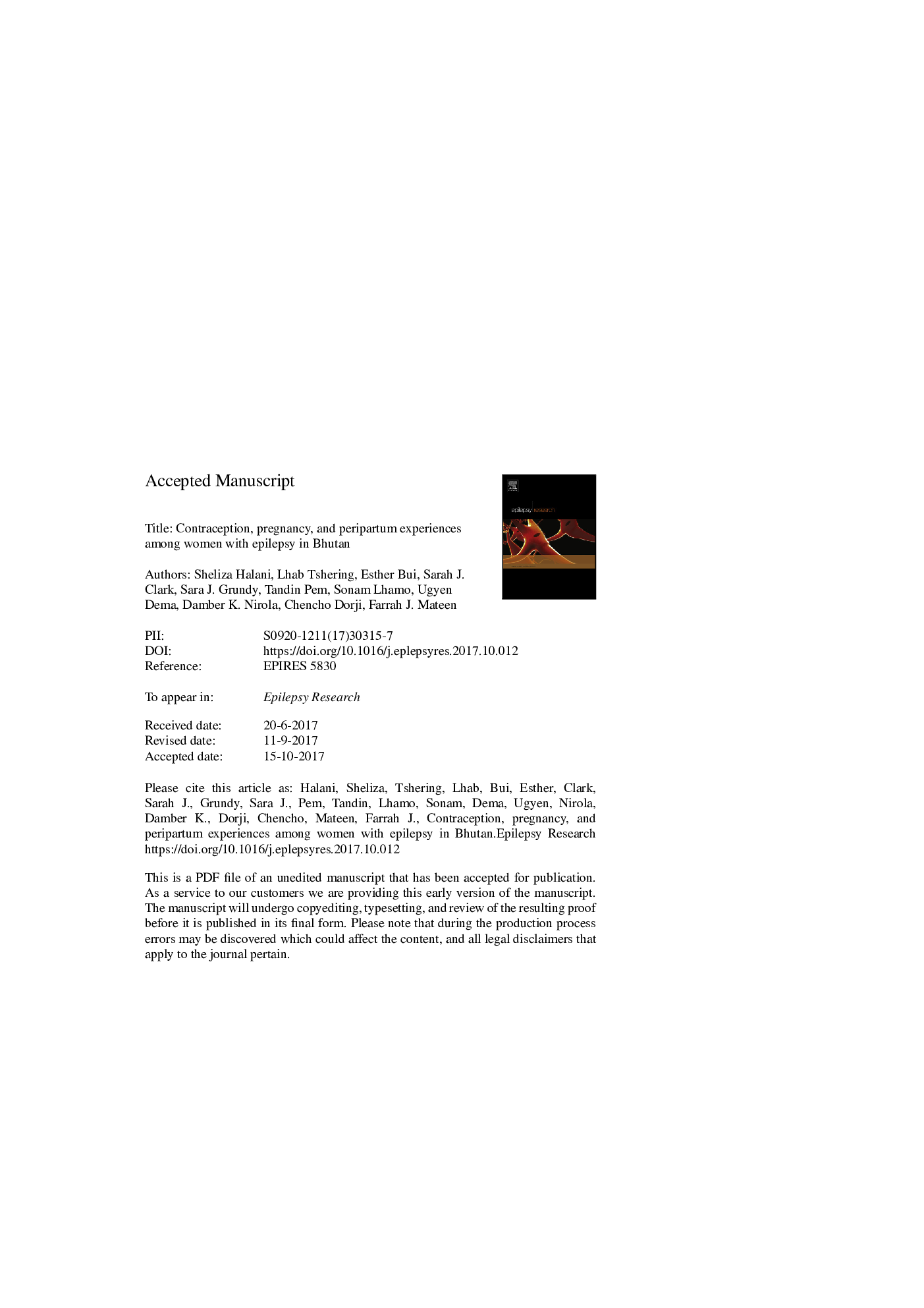| Article ID | Journal | Published Year | Pages | File Type |
|---|---|---|---|---|
| 8684346 | Epilepsy Research | 2017 | 24 Pages |
Abstract
Nearly half of Bhutanese WWE did not use contraception; among those who used it, male condoms were most common but 11% were at risk of potential drug-drug interactions between oral contraception and enzyme-inducing antiepileptic drugs. Bhutanese WWE had a high rate of prenatal visits. Folic acid was prescribed in most pregnant WWE but the majority began supplementation in the second trimester. The number of pregnancies in WWE in Bhutan (2.3 per woman) was comparable to the number of children per women in Bhutan (2.3). Breastfeeding was practiced almost universally. Points of intervention may include pre-conception initiation of folic acid, optimization of dosing of AEDs with contraceptives, guidelines for peripartum seizure treatment, and establishment of a prospective registry for WWE and their offspring.
Related Topics
Life Sciences
Neuroscience
Neurology
Authors
Sheliza Halani, Lhab Tshering, Esther Bui, Sarah J. Clark, Sara J. Grundy, Tandin Pem, Sonam Lhamo, Ugyen Dema, Damber K. Nirola, Chencho Dorji, Farrah J. Mateen, For the Bhutan Epilepsy Project For the Bhutan Epilepsy Project,
